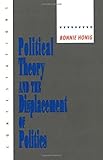LA Timesの記事;
http://d.hatena.ne.jp/sumita-m/20070123/1169521302でも書いたのだが、「信じる」という動詞自体が奇妙奇天烈ではある。信と不信は同時的に喚起されてしまう。また、〈アブラハムの宗教〉はどれもこの信と不信の相互不可分性を教義の中核近くに組み込んでいるといえるだろう。例えば、〈受胎告知〉されたマリアの戸惑い。
Congressman says he doesn't believe in God
Democrat Pete Stark of California is the highest-ranking elected official in the U.S. to make such a public acknowledgement.
By Adam Schreck, Times Staff Writer
March 13, 2007
WASHINGTON — Cue the jokes about godless politicians and Bay Area liberals.
Secular groups Monday applauded a public acknowledgment by Rep. Pete Stark that he does not believe in a supreme being, making the Fremont Democrat the first member of Congress — and the highest-ranking elected official in the U.S. — to publicly acknowledge not believing in God.
The American Humanist Assn. plans to take out an ad in the Washington Post today congratulating the congressman for his public stance and highlighting the contributions of other prominent secular humanists, such as writers Barbara Ehrenreich and Kurt Vonnegut and actress Julia Sweeney.
Fred Edwords, a spokesman for the group, said non-theistic Americans often faced discrimination for their views.
"So often throughout American history, people who are non-theistic or don't believe in a supreme being can't get elected to public office or, if they inform the public of their view, they don't get reelected," he said. "We're trying to increase the acceptance of non-theists as every bit as American as everybody else."
Stark's declaration came in response to a search by the Secular Coalition for America to find the most prominent nonbelieving politician.
The advocacy group, which according to its website calls for extending "religious tolerance … to people of all religions and to those without religious beliefs," offered a $1,000 prize to the person who could identify the "highest-level atheist, agnostic, humanist or any other kind of non-theist currently holding elected public office in the United States."
A member of American Atheists California nominated Stark.
Ron Millar, associate director of the Secular Coalition for America, said the group wanted to highlight how hard it was for politicians to take a public stance about not believing in God. He said members were "pleasantly surprised" with Stark's candor.
"We didn't think we'd have any member of Congress come forward," Millar said.
Stark, who has served in Congress since 1973 and chairs the health subcommittee of the House Ways and Means Committee, clarified his views in an e-mail statement.
"When the Secular Coalition asked me to complete a survey on my religious beliefs, I indicated I am a Unitarian who does not believe in a supreme being," Stark said. "Like our nation's founders, I strongly support the separation of church and state. I look forward to working with the Secular Coalition to stop the promotion of narrow religious beliefs in science, marriage contracts, the military and the provision of social services."
Unitarian Universalism describes itself as creedless, meaning that it has no underlying authoritative statement of religious belief. Some members believe in God; others do not.
A USA Today/Gallup poll last month found that 45% of respondents said they would vote for a "well qualified" presidential candidate who was an atheist. Ninety-five percent said they would vote for a Catholic candidate, 92% a Jewish candidate and 72% a Mormon candidate.
http://www.latimes.com/news/nationworld/politics/la-na-atheist13mar13,1,452202.story?ctrack=1&cset=true
ところで、このニュースはhttp://d.hatena.ne.jp/good2nd/20070321/1174462510経由で知ったのだが、そこで曰く、
これに対するひとつの〈ニーチェ的回答〉。Bonnie Honig Political Theory and the Displacement of Politics*1から。「神は死せり」;
それにしても「科学も宗教の一種にすぎない」とか「無宗教も宗教だ」みたいな物言いには、いい加減うんざりです。それじゃ、なんでも宗教じゃんか。
And yet the remnants of theology lurk everywhere: “God is dead; but given the way of men there may still be caves for thousands of years in which his shadow will be shown—And we—we still have to vanquish his shadow, too.” Nietzsche locates the remnants of theology in the sedimentations of language and grammar, in the devotion to science, in the Enlightenment faith in reason, in the Kantian project of constructing or justifying a world governed and directed by reason or right, in the transformation of morality into laws of nature that govern the physical world(Chapter 2, p.45).

Political Theory and the Displacement of Politics (Contestations)
- 作者: Bonnie Honig
- 出版社/メーカー: Cornell Univ Pr
- 発売日: 1993/05/01
- メディア: ペーパーバック
- クリック: 8回
- この商品を含むブログ (13件) を見る